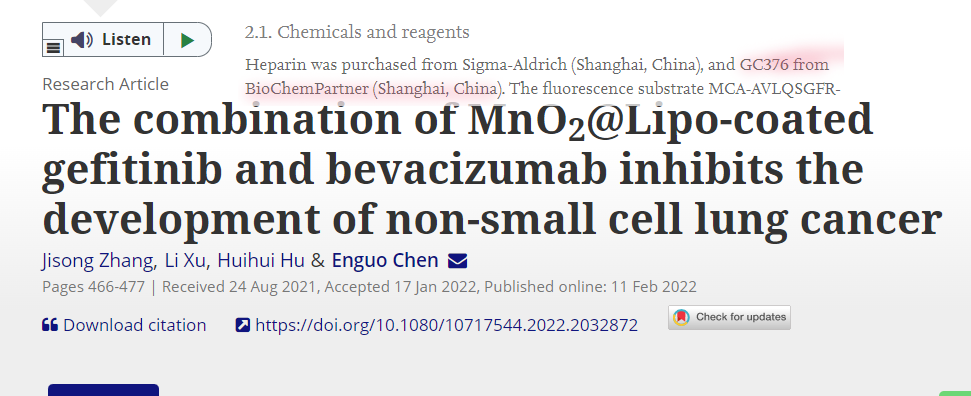Heparin interacts with the main protease of SARS-CoV-2 and inhibits its activity

Abstract The ability of SARS-CoV-2 to replicate in host cells is dependent on its main protease (Mpro, also called 3CLpro) that cut the viral precursor polyproteins and is a major target for antiviral drug design. Here, we showed that heparin interacts with the Mpro of SARS-CoV-2 and inhibits its activity. Protein fluorescence quenching showed that heparin strongly binds to the Mpro protein with dissociation constants KD of 16.66 and 31.60 μM at 25 and 35 °C, respectively. From thermodynamic parameters of the interaction, there are hydrophobic and hydrogen bond interactions between them. Fluorescence resonance energy transfer (FRET) assay demonstrated that heparin inhibits the proteolytic activity of Mpro with an inhibition constant Ki of 6.9 nM and a half maximal inhibitory concentrations (IC50) of 7.8 ± 2.6 nM. Furthermore, molecular docking analysis revealed that the recognition and binding groups of heparin within the active site of SARS-CoV-2 Mpro provide important new information for the characteristics of the interactions of heparin with the protease. Our finding suggested that heparin might have a potential role in inhibiting SARS-CoV-2 infection through inhibiting Mpro activity of SARS-CoV-2.




